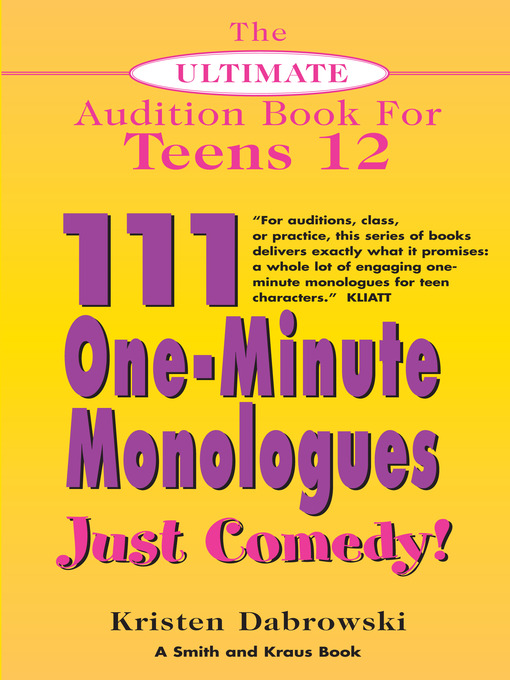Hello, actors! As a professional actor for fourteen years now, I know how hard the search for the perfect monologue can be. A monologue should be immediate, active, and fun. You shouldn't mind having to say it over and over when you're practicing, auditioning, or performing it. You should be able to relate to it. This is difficult; most plays are written for adults. Where are you supposed to get monologues from then? This book. Here are some tips on appraoching monologues: 1. Pick the monologue that hits you. Trust your instincts. You'll pick the right one. 2. Make the monologues active. What do you want and how do you try to get it? 3. Who are you talking to and where are they? Make sure you make this as clear as possible. 4. Do you get answered or interrupted? Be sure to fill in words in yoru head for the monolouge, even if it's a simple yes or no. 5. How do you feel about the person or people you are talking to? For example, you speak a lot differently to your best friend than you do to your math teacher. 6. Notes about stage directions and terminology: The word beat or the start of a new paragraph indicates another character speaks or a new idea arises. Pause or other stage directions like shocked are suggestions, but do not need to be observed absolutely.
- Available now
- New eBook additions
- New kids additions
- New teen additions
- Most popular
- Try something different
- See all
- Available now
- Books to Movies on Audio
- New audiobook additions
- New kids additions
- New teen additions
- Most popular
- Try something different
- Thrilling Listens
- Road Trip!
- Always Available Audiobooks
- See all


